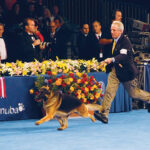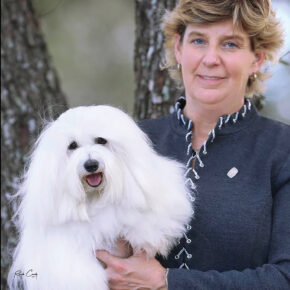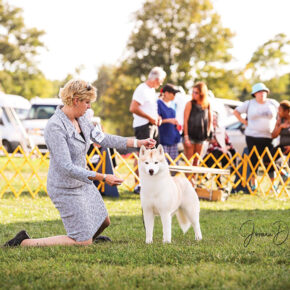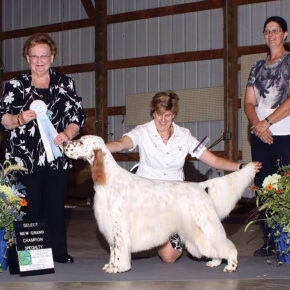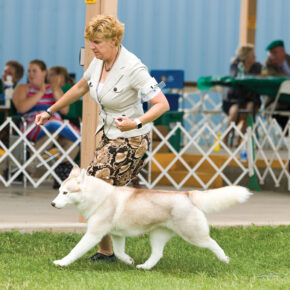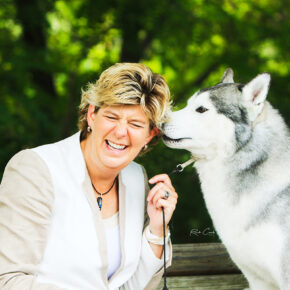Laura King
Interview with Professional Handler
BIS Magazine USA June 2021 issue
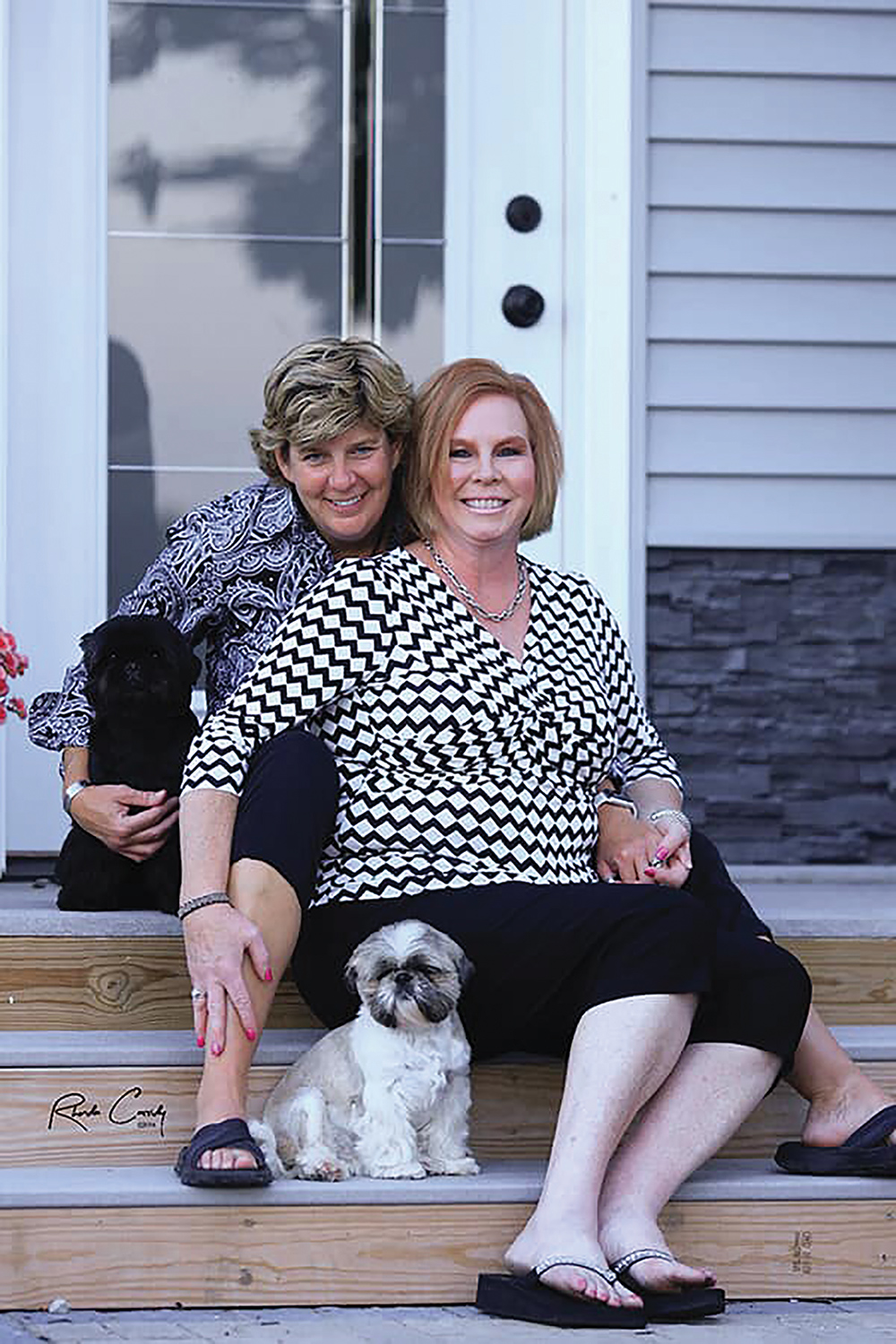
Q: Hi Laura, Thank you for taking the time to do this interview for Best in Show magazine. Please tell us more about your beginnings in the sport?
A: My mother was a Belgian sheep dog breeder when I was born. I learned to walk by hanging on to her foundation bitch Dora. When I was old enough for my own dog, my parents decided that a Belgian would be too big for me, so they acquired a Schipperke for me from Dorris Hearing of Landmark Kennel.
Q: Who were your mentors when starting out in the sport of dogs and how do you feel about mentoring newcomers?
A: Without a doubt my mother had the most influence over me. She taught me basic animal husbandry along with animal structure and movement. I can still hear her voice when I see a dog with great timing and carriage. She would always say “it may be hard to explain, but you’ll know it when you see it.“
I welcome the chance to mentor newcomers. It is often hard to find time at shows to do it, but I really enjoy it when I get the chance.
Q: Do you remember your first BIS win, and what was the breed and name of the dog?
A: My first BIS was under Mrs. Anne Rogers Clark. I was exhibiting a Newfoundland named Ch. Seabrook’s Headmaster Tabu, nicknamed Bud. I was so shocked when when she called for the Newfoundland I exclaimed, “Holy s###!“ While we were taking the photo the judge gave me some tongue-in-cheek advice, “Young lady, its best not to swear at a judge who is trying to award your dog” – I was horrified!!
Q: What made you decide to become a professional handler? What career other than dogs would you pursue?
A: I have always known that I wanted to be a handler. As a young child I would basically “stalk” the successful handlers in our area, watching every move they made both in and out of the rings. My parents were having none of it unless I got a four-year degree. So, I did and even worked part way through my Masters’ degree in Exercise Physiology before quitting to begin handling. I could go back and finish that, but I think I would have to start over as I remember very little of it.
Q: You had some amazing wins and showed some great top dogs through years. Please tell us what do you consider highlights of your career so far?
A: I have been very fortunate to be able to show some amazing dogs in a variety of breeds, but I think winning the national specialty is truly the most amazing win. I have been lucky enough to win a number of nationals and each is thrilling. I could not single one out, although the 2017 Siberian Husky National was pretty spectacular. As far as all breed shows go being awarded BIS at the Louisville Kennel Club Show with Ch. Chestnut’s Selling the Drama under Mr. Edd Bivin was among the most exciting.
Q: Please name three dogs of the past that you admire that are not owned or shown by you.
A: Ch. Nanuke’s Take No Prisoners, Ch. Torum Scarf Michael, and Ch. Lou Gin Kiss Me Kate. I was very young when I saw her but remember her staring down all the dogs in the Best in Show ring at the International Kennel Club, and thought it was the coolest thing I had ever seen.
Q: Are you superstitious? Do you have any special habits you apply with your top dogs?
A: I am very superstitious. Each dog that we have who becomes a top winner has only one lead. No matter the condition of that lead, it will always be attached to that dog in some fashion. I also use a certain table for our top special along with equipment that is only to be used on that dog. I keep the same rubber bands from week-to-week. If one breaks, I replace it with a band from the group ring table.
Q: What is your handling philosophy?
A: As long as the dog is fit and happy, the rest will fall in to place.
Q: What part of your job do you like the most and what part the least?
A: Working with the dogs is by far my favorite part of the sport. They help to keep me grounded. I think that social media has created a real problem in not only our sport but society. What used to be a fun venue for sharing has turned into a bully pulpit. Obviously it can still be used for good, but can do much damage when it is not. I could do without having ever been introduced to it.
Q: What is the funniest thing you have ever experienced at a dog show?
A: Having an overzealous Newf puppy get into a tug of war with my skirt while I was in it. The skirt lost.
Q: Do you have a favorite show?
A: I really enjoy the shows in Cambridge, Minnesota—great venue, great club.
Q: What do you think about Lyndhurst as the new venue for Westminster this year?
A: I am thrilled that WKC was able to pull this off. I cannot imagine the amount of work and attention to detail that had to go into moving the location for such an enormous event under such trying circumstances. I look forward to it, but also to returning to New York City.
Q: What is your greatest concern regarding the sport? If you could, what would you change in the dog show world?
A: I am very bothered by our tendency to eat our own. We need to learn to support one another and not judge without all of the facts. Just because someone coducts themselves or their breeding program in a way that you would not doesn’t mean it is wrong.
Q: Is there anything in life that you would like to do other than being involved with dogs?
A: I really wish that I could sing.
Q: What advice would you give to young people who aspire to become professional handlers?
A: Do the work. Find a handler that you admire and ask for a job. Learn the ins and outs of the business, not just how to show a dog. The real work happens outside of the ring. If you learn that correctly the rest will fall into place.



